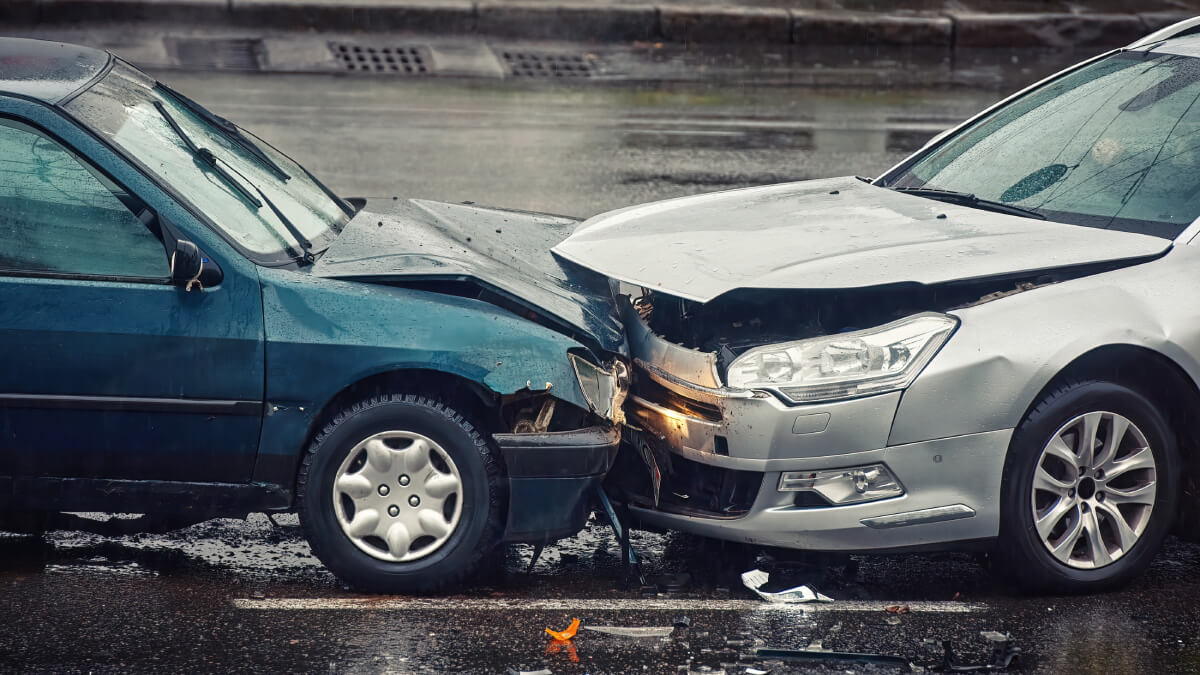Car accidents are unpredictable and often highly stressful. And with over 330,000 accidents in the UK each year, the risk is far greater than many assume. With that in mind, understanding the procedure following an accident is integral for your safety, that of the other affected party, and all other motorists. From the immediate aftermath to filing an insurance claim, in this article, we’ll be guiding you through what to do after a car accident so you’re fully prepared for the worst.
Crash Checklist: What To Do After A Car Accident
Car accidents in the UK are on the rise, and as more vehicles take to the roads each year, this trend isn’t expected to change anytime soon. Having dealt with countless crash repairs in Milton Keynes, we know just how many of these motorists aren’t clued up on post-accident procedures. So, we’ll be using our expertise to create a crash checklist, helping you follow the necessary steps if you are in a road traffic accident.
- What To Do In A Car Accident
- How To Report A Car Accident
- How To Claim On Insurance For A Car Accident
- How To Repair Your Car Through Insurance
- How Is The Process Different For Company Vehicles?
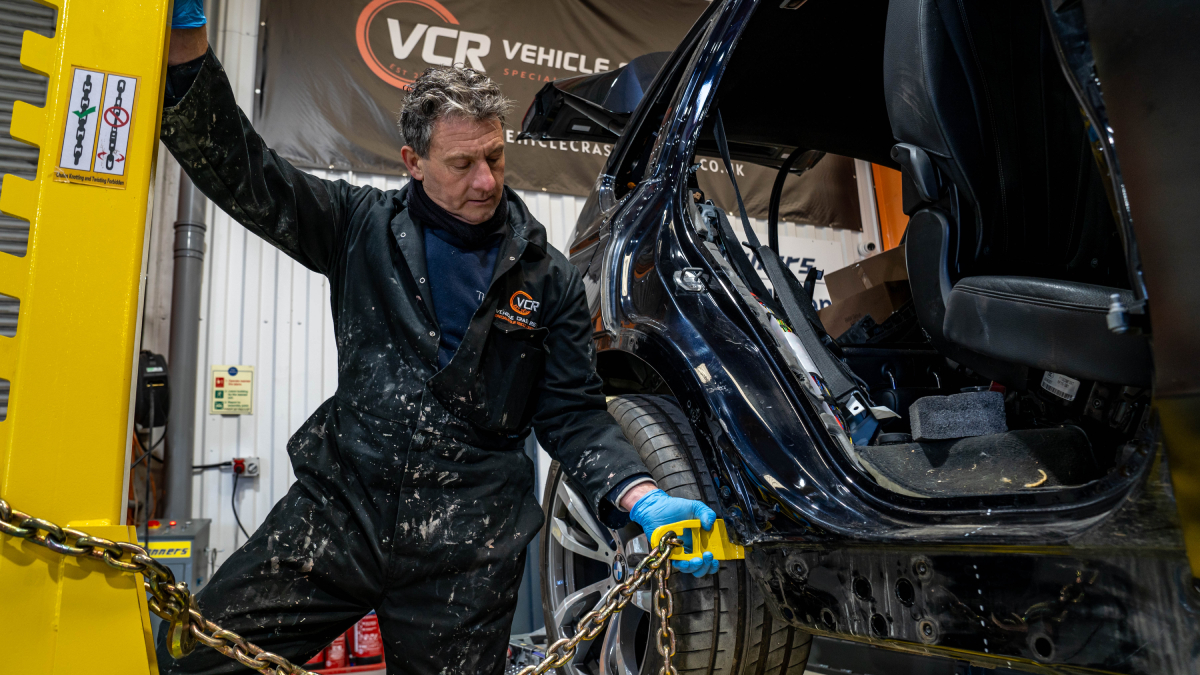
What To Do In A Car Accident
No matter how minor a car accident may be, it’s always a shock to the system. So, the best way to keep your cool following a collision is to have a pre-arranged plan that you can work through in the immediate aftermath. Below are eight easy steps to follow after an accident:
1. Stop Safely & As Soon As Possible:
It’s not an offence to stop your car as soon as possible following an accident. So, as long as you’re safe to do so, switch off the engine. If you fail to stop after a crash, you could be charged with leaving the scene of an accident, AKA a ‘hit-and-run’.
2. Turn Your Hazard Lights On:
Your hazard lights will let other motorists know there’s an obstruction or debris on the road, protecting you and them from another collision.
3. Ensure Everyone Is OK:
Remain in your vehicle and check that any passengers are alright. If anyone needs urgent medical care, call an ambulance before proceeding with any of the remaining steps. As difficult as it may be, avoid making rushed decisions or hurrying out of the vehicle, as this may cause more harm.
4. Get Out Of The Car:
Carefully leave your car and examine the scene. If someone is hurt or vehicles are blocking the road, call the police and an ambulance on 999. If immediate help isn’t necessary, you can report the accident on 101 after completing these steps.
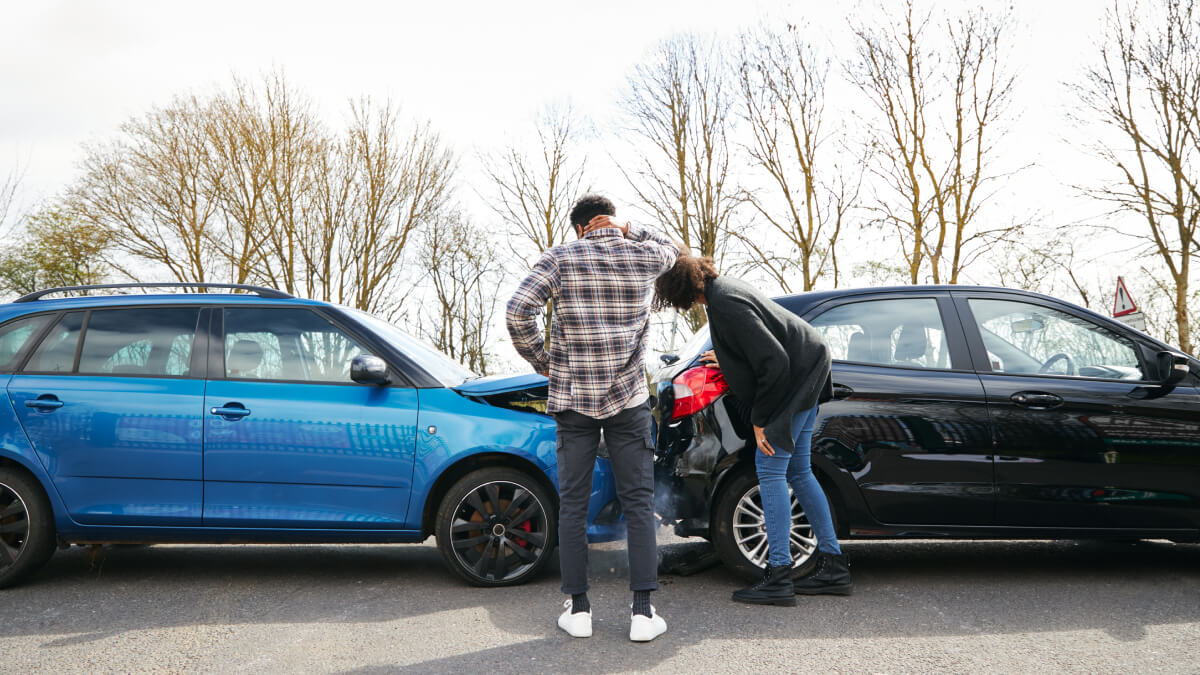
5. Speak To The Other Drivers Involved:
Once the more pressing matters have been addressed, speak to the other drivers involved and exchange details. Don’t apologise or admit fault, as the police and insurers will decide who is liable. Moreover, don’t point the finger at other drivers, as this will only escalate the situation.
6. Talk To Passengers & Witnesses:
Anyone else who can provide a first-hand account of the accident will be beneficial when determining who’s at fault. Ask for the details of anyone who saw the collision.
7. Take Photos:
This step is crucial and so often forgotten. Photos will help the police and insurers understand how the accident happened. Be sure to include any injuries and damage to the car. Additionally, note down the driving conditions alongside the time and date of the crash.
8. Inform Your Insurance Provider:
Let your insurer know about the accident as soon as possible. Failing to notify your insurance provider could invalidate your policy, even if it was a minor collision. We’ll address how to claim on your insurance in greater detail below.

How To Report A Car Accident
Depending on the circumstances, you may need to report an accident to the police. If you’re in an accident that has caused personal injury or property damage, you’ll need to exchange insurance details with any other drivers involved. If, for whatever reason, you haven’t been able to exchange details at the scene, this should be reported to the police within 24 hours.
Additionally, it may be necessary to report a car accident to the police if:
- The road is blocked due to the accident
- You suspect the other driver is drunk or on drugs
- You suspect the other driver caused the crash on purpose
Unless there is an emergency or someone needing urgent care, car accidents should be reported to the police via the 101 non-emergency services. Alternatively, they can be reported in person at the police station.

How To Claim On Insurance For A Car Accident
Following an accident, the claims procedure will vary depending on your insurance type – third-party or comprehensive. Third-party insurance is the minimum level of car insurance the law allows. It covers damage to another person’s car and compensation costs for injuries to other people. Alternatively, comprehensive insurance covers everything third-party insurance does, along with any damage to your car, whether or not you are at fault.
Claiming With Comprehensive Insurance
If you have a comprehensive policy, you should submit a claim with your own insurer. Keep in mind that if your insurer is unable to recover the money from the other driver’s insurer, you could lose your no-claims bonus. You can also make a claim with the other driver’s insurer for any injuries or losses not covered by your own policy; these are known as uninsured losses. Uninsured losses can include expenses for alternative transport while your vehicle is being repaired, loss of earnings, personal injuries, and the excess on your policy. Comprehensive insurance claims are made using internal forms from the insurer.
Claiming With Third-Party Insurance
If you have third-party insurance, you’ll need to make a claim against the other driver and allow the insurer to decide who is responsible for the accident. If it’s decided that you’re responsible, you’ll have to pay for the repairs to your vehicle. To file a claim with third-party insurance, you’ll have to tell them in writing that you want to claim from them and inform your insurer that you have done this.
If you find out via the Motor Insurance Database that the driver you’ve collided with is uninsured, the Motor Insurers Bureau may be able to settle your claim without involving your insurer.
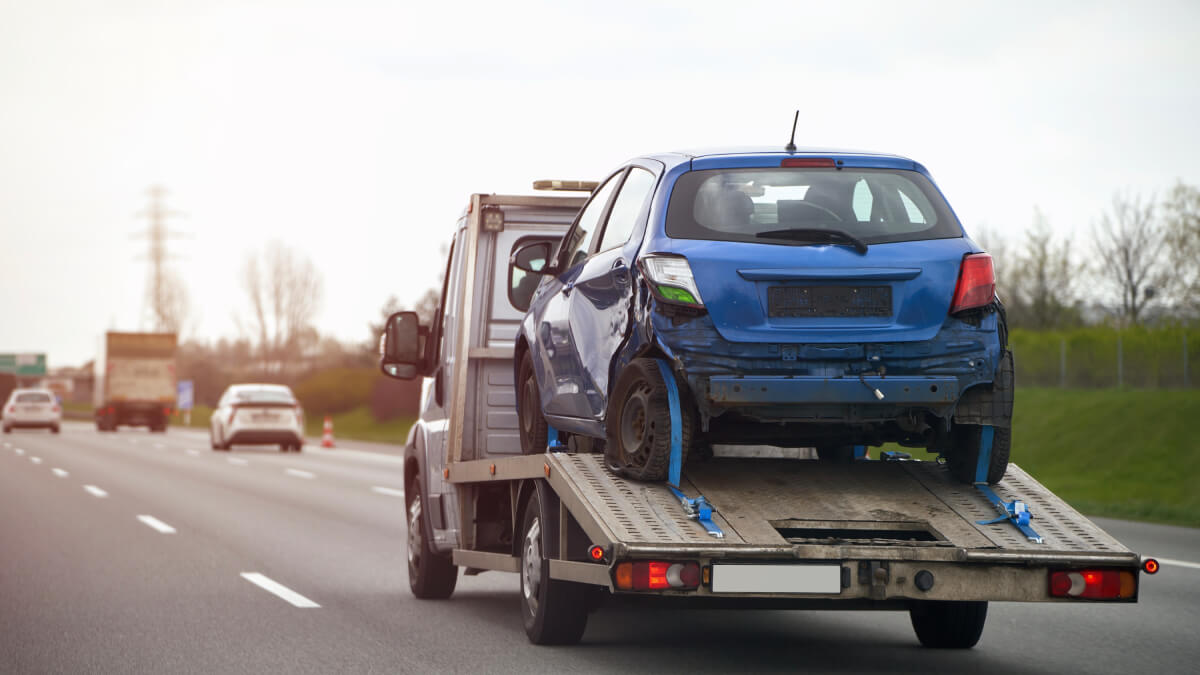
How To Repair Your Car Through Insurance
Often, after an accident, your insurer will send someone to inspect your vehicle before you get it repaired. If they decide that it is not economical to repair your car, they’re required to offer you its market value instead.
In most cases, however, they’ll ask you to use an insurance-approved repairer, like Vehicle Crash Repairs, and provide them with estimates before any repairs take place. By law, you can select any insurance-approved repair centre to carry out the necessary work on your car. All you need to do is inform your insurer where you’d like the repairs to take place.
At Vehicle Crash Repairs, our insurance-approved car body repairs in Milton Keynes have helped take the hassle out of countless post-accident repairs by liaising directly with insurers. Once your vehicle is dropped off at our workshop, you’ll be given a courtesy car to minimise the disruption caused by your accident. All our work is covered by a two-year warranty so you can have complete peace of mind in our service.
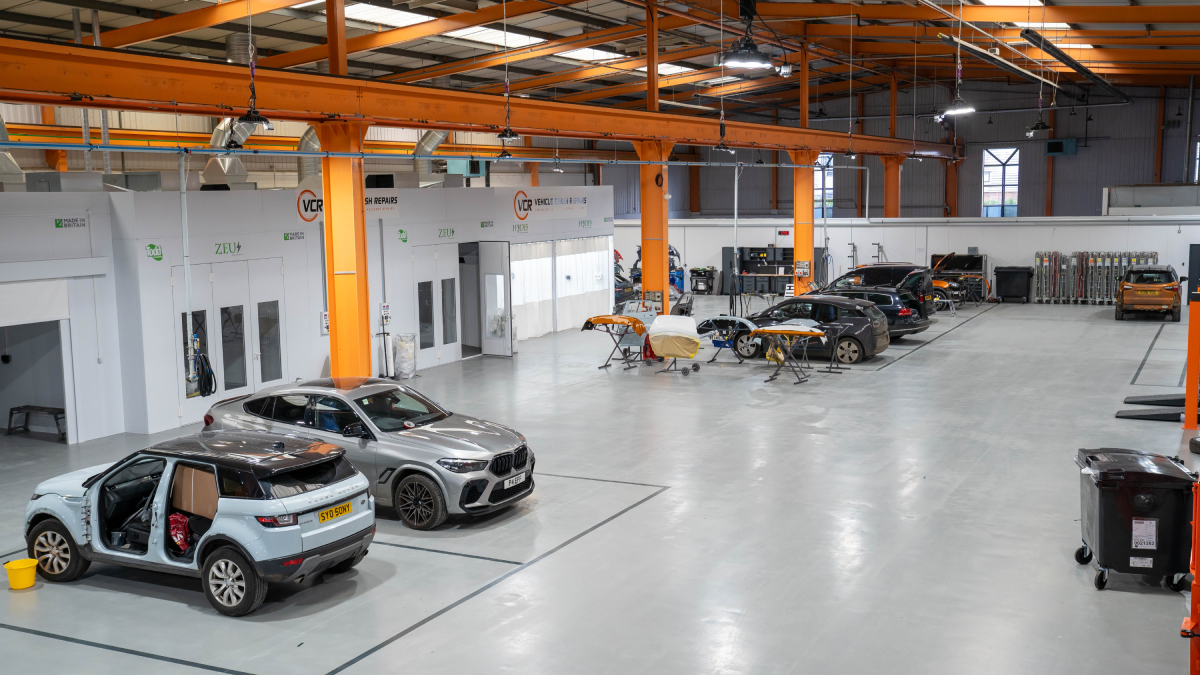
How Is The Process Different For Company Vehicles?
The process following an accident varies slightly when at least one of the vehicles involved belongs to a company and is driven by an employee. In most cases, company cars are insured by the employer, usually under a multi-driver or fleet policy. This means the employer will handle any insurance claims themselves and reserves the right to deduct the costs involved in claims from the employee’s pay. If the accident is deemed to result from misconduct or negligence, the employer can legally dismiss the employee. It’s essential that you clarify the procedure following an accident with your employer before getting behind the wheel of a company car for the first time.
As with accidents involving personal cars, any necessary repairs must be made in an insurance-approved body shop. Vehicle Crash Repair’s commercial car body repairs in Milton Keynes make it easy for businesses to minimise their vehicles’ time off the road. Our express bodywork repairs can even have your company vehicles back on the road within 48 hours. Our streamlined repair processes help maintain your business’ reputation by getting your vehicles back on the road in pristine condition.
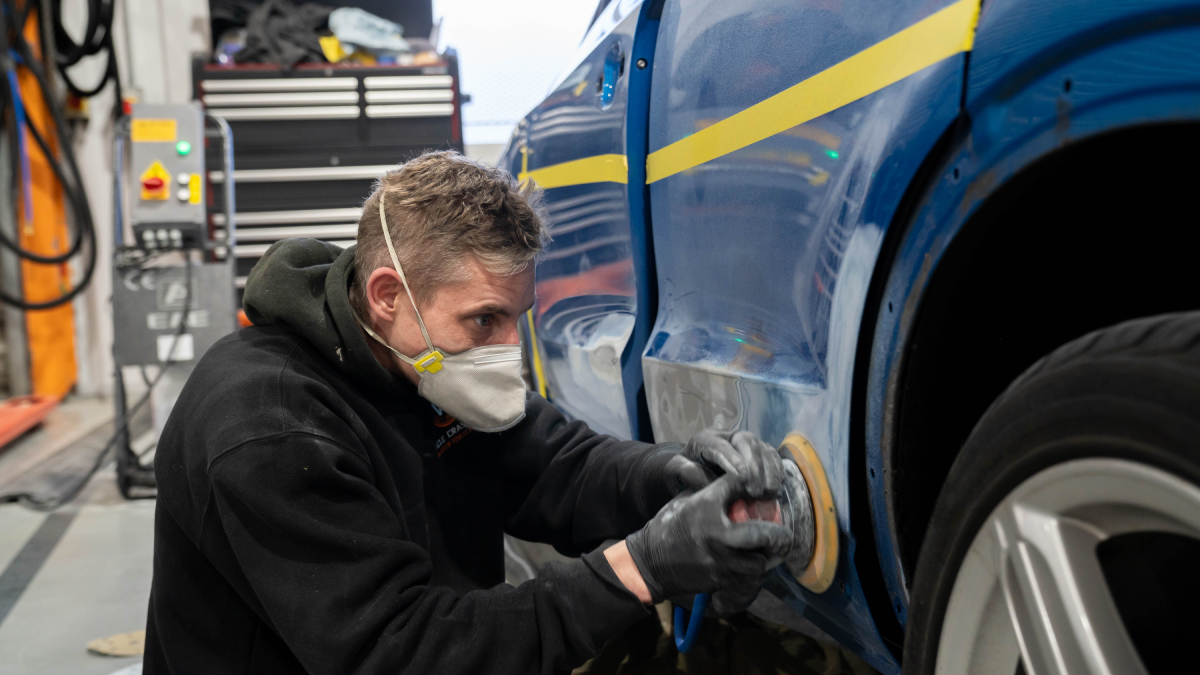
Take To The Road With Confidence
Now that you’ve got all the information you need to effectively deal with an accident, you can confidently get back behind the wheel. Remember to ensure the safety of everyone in your vehicle before getting out and exchanging details with the other drivers involved.
For an insurance-approved repair centre, look no further than Vehicle Crash Repairs. Our processes are designed to take the hassle out of your repairs and minimise your vehicle’s downtime. Get in touch with our team to fill out our insurance information form.


